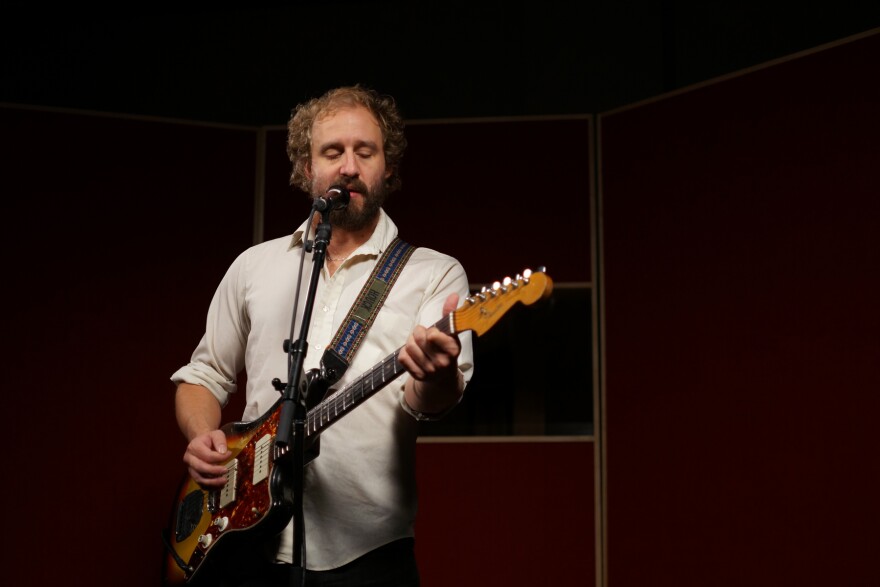The London Evening Standard anointed Matthew Houck as “the most significant American in his field since Kurt Cobain.” As the driving force behind Phosphorescent, there’s no pressure there, right?
Six albums later, you'd think what the Standard had to say was enough, but the praise keeps stacking up. Phosphorescent's latest, Muchacho, found its way onto many critics list at the end of 2013 - including an album of the year nod by Paste Magazine.
Thanks to a wide range of influences, Phosphorescent’s sound is hard to pigeonhole - described by many as indie-pop, folk or Americana. The pressure though can be found in living up to comparisons, like Bob Dylan or Will Oldham. Just like those artists, the songwriting is the important thing, the serious thing for Houck.
"I think I’ve always treated it pretty seriously," said Houck. "To the extent that it’s kind of what I do, so yeah, I’m hoping I’m doing a good job at it."
http://youtu.be/AEmyY66RO5E
Interview Highlights
Why the name Phosphorescent?
“I knew I didn’t want to call this thing ‘Matthew Houck.’ It’s not just me; it’s been a lot of people involved in it now. I’ve been doing this for a while. Phosphorescence, as I gather, means something that burns without combusting. It doesn’t burn itself out. It doesn’t use fuel. So it can just give off light without eating itself up.”

With “Song For Zula” you pull from the June Carter/Cash reference with “Ring of Fire,” and you’ve dedicated an entire album to Willie Nelson - who else would you like to pay tribute to?
"Loads of folks really, you know all those major dudes. I think could probably handle a dozen or so of Waylon Jennings tunes, or maybe Lucinda Williams, or Dolly Parton. You know I like all that stuff."
Where did the sound of "Ride On/Right On" come from?
“Yeah that sound kind of happened out of that groove. We just stumbled upon it, and was kind of undeniable it felt like. That one kind of wrote itself, to be honest.”






